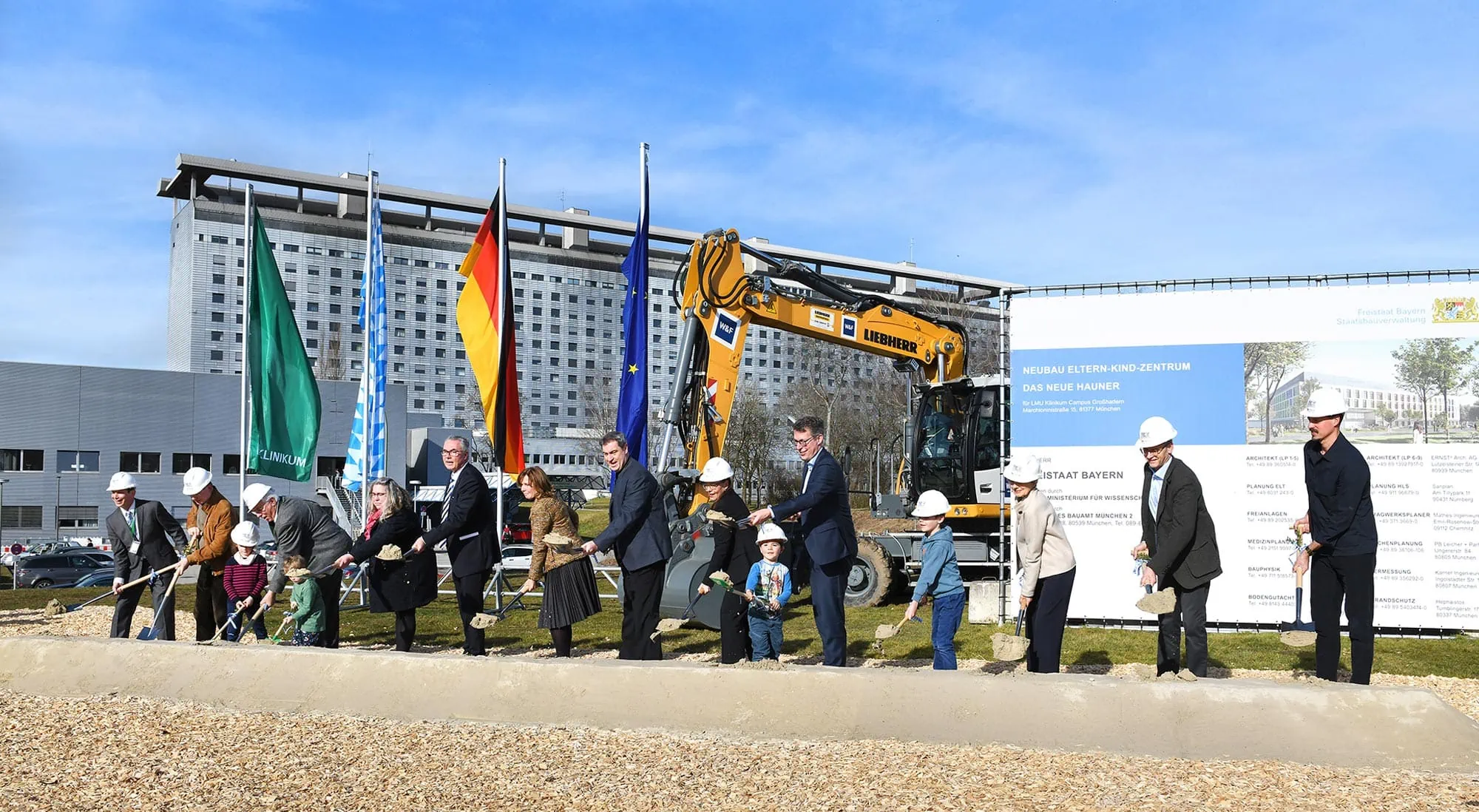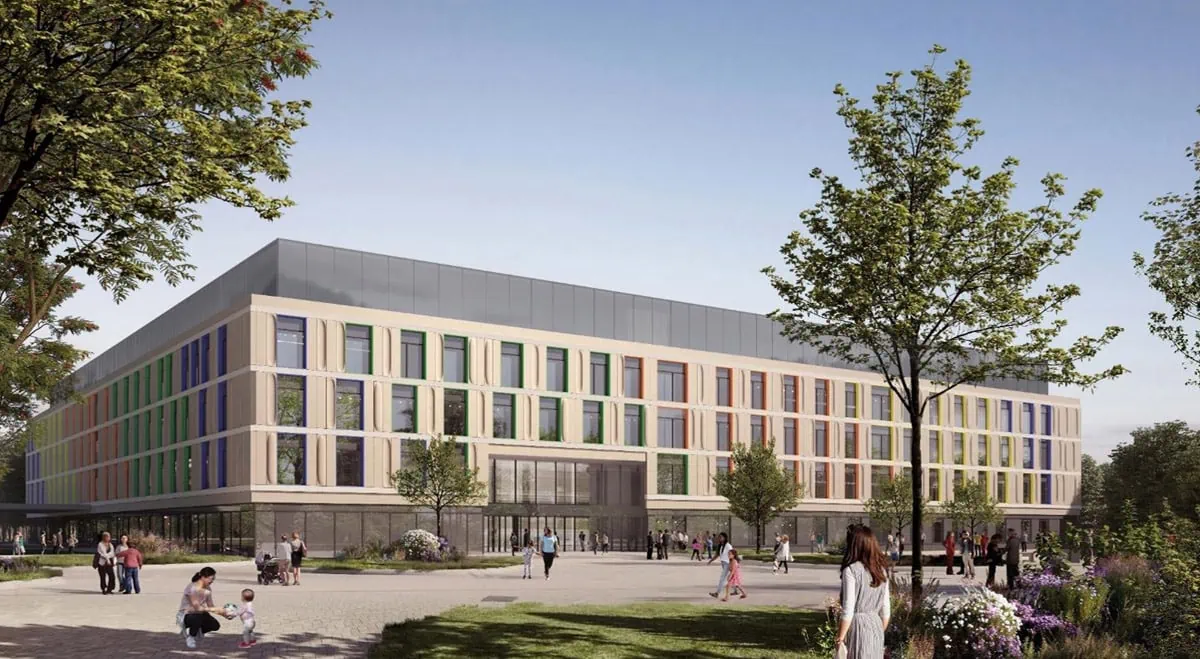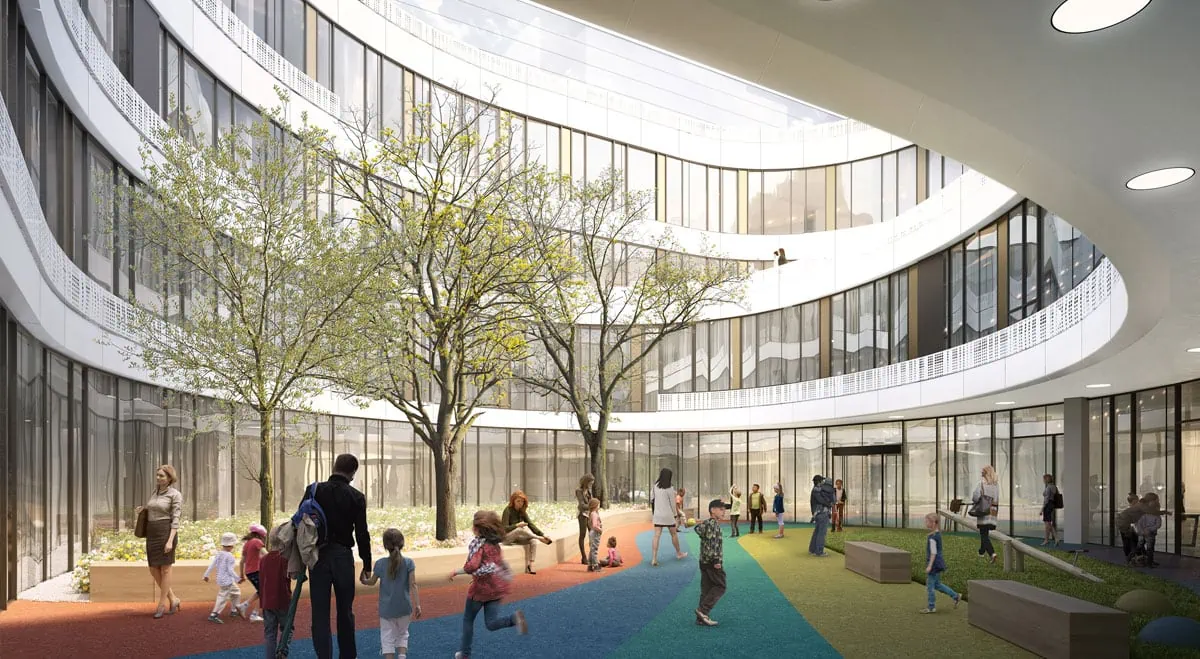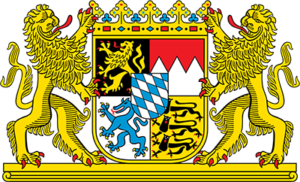Construction of the “New Hauner” at the Grosshadern Campus has started
The LMU’s state-of-the-art University Hospital for Paediatric and Youth Medicine will replace Dr von Hauner Children’s Hospital at the end of the decade.
March 2023

© LMU Klinikum
The ground-breaking ceremony of the New Hanauer
“Today, after careful planning, the construction of the New Hauner really gets started. A paediatric clinic of international repute is now getting a new home at the LMU Hospital, replacing the sometimes difficult architectural conditions on Lindwurmstrasse with modern structures suitable for children. The Grosshadern Campus stands for the future of cutting-edge medicine for children.”
Prof. Dr Markus M. Lerch, Medical Director of LMU Klinikum München
The ground-breaking ceremony on 13 March 2023 marked the start of construction of a state-of-the-art interdisciplinary and interprofessional university clinic for paediatrics and youth medicine at the Grosshadern campus. The New Hauner with its almost 200 beds will bring together the clinics for paediatrics and paediatric surgery with the integrated social paediatric centre and other facilities. The Free State of Bavaria is financing the 420 million euro budget and is also providing additional funds to cover future increases in construction costs and possible construction risks. The ground-breaking ceremony was attended, among others, by Bavaria’s Minister-President Dr. Markus Söder and Bavaria’s Minister of Science, Markus Blume.
“Bavaria is also playing in the Champions League when it comes to medicine,” said Minister-President Dr. Markus Söder at the ground-breaking ceremony. “The Free State is investing around 550 million euros in one of the largest children’s hospitals in Germany and Europe. The Hauner stands for optimal medical care for children and adolescents. It is also an institution for science and research at the highest level worldwide. This money is excellently invested for the future of our children.”
Science Minister Markus Blume added: “Bavaria is making history today: We are giving one of the most renowned and important children’s hospitals in Germany a new home and underpinning our claim to be the number one medical hub. The Hauner is an international flagship for the Free State. With the new building, we are creating the most modern children’s hospital in Europe and the best conditions for the care of sick children and the research of new therapies. This is both an obligation and a promise for the future. Because the health of our youngest is our most valuable asset!”
For the Medical Director of LMU Klinikum München, Prof. Dr Markus M. Lerch, the ground-breaking ceremony is a significant event, especially for the young patients. “Today, after careful planning, the construction of the New Hauner really gets started. A paediatric clinic of international repute is now getting a new home at the LMU Hospital, replacing the sometimes difficult architectural conditions on Lindwurmstrasse with modern structures suitable for children. The Grosshadern Campus stands for the future of cutting-edge medicine for children.”

© Nickl & Partner
Exterior image of the University Hospital for Paediatric and Youth Medicine – rendered image

© Nickl & Partner
The inner courtyard will provide for plenty of daylight – rendered image
The new construction of the state-of-the-art paediatric clinic with a total of 196 beds opens up the opportunity for the LMU Hospital to provide care for children of all ages – from extremely premature babies to young adults – and for all clinical pictures at a central location. The seven-storey building (U2, U1, ground floor, 1st, 2nd, 3rd floors and technical floor) unites the clinics for paediatrics and paediatric surgery. The New Hauner will be directly connected to the already existing obstetrics department in the adjacent “Bettenhaus”. The departments for neonatology, paediatric cardiology and paediatric palliative medicine are also currently already located at the Grosshadern campus.
The spatial integration into the Grosshadern campus – and the compact structure within the new building with a floor plan of 90 by 90 metres and a usable floor space of 19,200 square metres – enables short distances for staff and patients, the optimal mapping of clinical treatment pathways and the networking of medical and therapeutic services across specialist disciplines. This makes the best possible treatment of children with often chronic and highly complex diseases.
The focus on the entire well-being of the young patients and their families, which was also important to the founder of the Dr. von Hauner Children’s Hospital, is also reflected in the architecture of the new building: four inner courtyards provide plenty of daylight and a positive atmosphere in all spaces. Open areas with play and recreation facilities as well as a cafeteria with indoor and outdoor areas in the foyer create a pleasant and family-friendly atmosphere.
Patient care, research, teaching and training are well connected
Not only patient care, but also research, teaching and training play an important role at the New Hauner. Shared working environments will promote scientific exchange across disciplines and professional groups. Modern laboratories and seminar rooms are being built on the ground floor, and there will be a lecture hall on the ground floor. This follows the strong tradition of research at the Dr. von Haunerschen Children’s Hospital: Since its founding in 1846, ground-breaking discoveries have been made there time and again and new therapeutic procedures established: for example, Emil von Behring, the first Nobel Prize winner in medicine, developed an anti-diphtheria serum. Theodor Escherich, pioneer of modern biotechnology, isolated the coli bacteria Escherichia coli from the stool of babies for the first time. Today, research at Dr. von Hauner Children’s Hospital occupies a leading position in Germany. In particular, the areas of haematology, immunology and oncology, asthma and allergies, as well as nutrition research, have also been recognised for their international significance by three European Research Council (ERC) Advanced Grants.
Construction of the New Hauner to start in the second quarter of 2023
Construction is scheduled to begin in the second quarter of 2023. Earlier plans had called for construction to begin as early as 2018/19. However, changes had to be made to the content of the project due to the examinations that took place after the architectural competition (2015) to realise the project. “In addition, there were other hurdles to overcome, such as a long period of pandemic and changes to state procedures,” says Uta Riedel, head of the “State Hospitals” division at the Munich State Building Authority 2. “Certain procedures needed to be redone, including a clearance in the Bavarian State Parliament.”
The construction costs for the New Hauner with integrated computer centre, the school for the sick, a childcare facility for siblings as well as a powerful photovoltaic system currently amount to around 420 million euros. The construction costs have risen considerably in the last few years. Reasons for this include the shortage and increase in the price of materials, a bottleneck among construction companies and in the trades, as well as the rise in costs in the energy sector. Additionally, there are further requirements for fire protection as well as additional costs due to the nature of the soil. Future increases in construction costs and possible construction risks were taken into account in the approval.
Civil engagement
Thanks to a broad citizens’ commitment, donations amounting to almost 25 million euros are also available for the realisation of special projects in patient care as well as for research and teaching at the New Hauner. “This is where we will remain active with our Foundation,” promises Prof. Dr. Markus M. Lerch and is pleased “that Sandro Wagner, ex-national football player and football co-commentator, is taking on a sponsorship for the New Hauner as a high-profile advocate.” Sandro Wagner himself was born in the LMU Klinikum Grosshadern, has four children and one of his sons has already been treated in the Dr. von Hauner Children’s Hospital.
- Marchioninistraße 15
- 81377 München
- Phone: +49 (0)89/4400 – 72101
- ed.nehcneum-inu.dem@greb.aidualc
- www.klinikum.uni-muenchen.de



